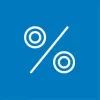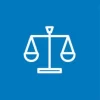Bonds are loan agreements that entitle their holder to interest and can be bought and sold as securities. They are widely used in diversified investment portfolios. Some investors also buy bonds with the aim of reselling them for a profit.
Who can issue a bond?
Bonds may be issued by a government agency, in which case they are known as government bonds. Companies can also issue bonds. Medium-term notes are similar to bonds, but they are not traded on stock exchanges and are primarily issued by banks.
How can I buy and sell bonds?
Both government bonds and corporate bonds are normally traded on stock exchanges. You can buy bonds using a custody account at a traditional Swiss bank, or using an online trading platform from a Swiss bank that specializes in stock brokerage. Pay attention to the brokerage fees that your bank charges when you buy a bond, and the custody fees that you bank charges to keep the bonds in a custody account. These investment costs detract from the returns you earn.
What are the costs of investing in bonds?
Most Swiss banks charge high brokerage fees and custody fees. At many Swiss banks, the fees are the same as those for stock investments. However, there are some banks that have lower trading fees for bonds than for stocks.
The differences in fees charged by different Swiss banks are large. If you frequently buy and sell bonds worth large amounts of money, you could end up paying thousands of francs more at one bank than at another.
Table: Fees for buying and selling Swiss bonds worth 100,000 francs
| Bank |
Annual investment costs |
| Cash - banking by bank zweiplus |
CHF 242 |
| PostFinance |
CHF 255 |
| VZ (Ticket Fee Online) |
CHF 262 |
| Cornèrtrader |
CHF 304 |
| Swissquote |
CHF 374 |
| Banque Cantonale Vaudoise (TradeDirect) |
CHF 383 |
| Migros Bank |
CHF 383 |
| Basler Kantonalbank |
CHF 386 |
| Bank Cler |
CHF 397 |
| Berner Kantonalbank (money-net Depot) |
CHF 592 |
| St. Galler Kantonalbank |
CHF 644 |
| Raiffeisen |
CHF 694 |
| Zürcher Kantonalbank |
CHF 698 |
| Aargauische Kantonalbank |
CHF 720 |
| UBS |
CHF 977 |
Annual cost of buying and holding Swiss bonds worth 100,000 francs, including brokerage fees, stamp duties, account fees, and custody fees.
Important: The number of transactions you make, and their size, plays a substantial role in determining which bank is the cheapest. You can compare the costs of investing in Swiss bonds based on your specific needs using the independent online trading comparison on moneyland.ch. You can choose “Swiss bonds” under “User profile” to compare banks based on a general profile. For a more precise comparison, use the “individual profile” to customize the number and size of transactions, and the total value of the bonds you will hold in your account.
What else should I pay attention to?
Before you even consider buying a certain bond, it is absolutely crucial that you check the creditworthiness of its issuer. You can radically reduce the risk of a borrower not being able to repay the debt by only buying bonds from issuers with excellent creditworthiness. The credit ratings provided by rating agencies provide a good reference point. Swiss federal government bonds, for example, regularly receive top ratings (AAA). The bond term also has an impact on risk, with the risk of default being lower when you use shorter bond terms.
If an issuer does not have an excellent creditworthiness rating, then the risk that they will not repay the loan is higher. These bonds often pay interest at higher rates in order to compensate for the higher risk. So your personal risk tolerance also plays a notable role when choosing which bonds you want to invest in.
More on this topic:
Compare Swiss online trading platforms now
Useful tips for investing in stocks

 Deal of the Day
Deal of the Day 










